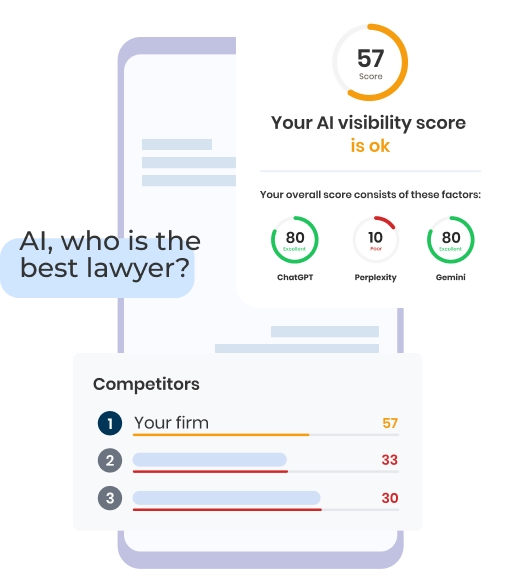Table of Contents
Pay-per-click (PPC) is an online advertising model to place your firm at the top of Google for legal searches like "hire a DUI lawyer in (city)." You only pay when a user clicks your ad.
But in 2026, legal PPC is brutally competitive. And brutally expensive.
You could pay well over $110 per click in practice areas like personal injury, criminal defense, and employment law, without getting a single qualified lead. Yikes!
So, how do you avoid blowing money? PPC for lawyers demands precision and an eagle-eyed strategy! In 9 steps, we'll show you how to guarantee your ads convert like crazy and land you more clients.
Key Takeaways
- PPC delivers fast, high‑intent leads for law firms
Unlike SEO, PPC puts lawyers at the top of Google immediately when potential clients are actively searching for legal help, making it one of the fastest ways to generate qualified leads. - Strategy - not budget - determines PPC success
Effective keyword research, strong ad copy, negative keywords, and conversion‑optimized landing pages matter more than spend. Poor strategy wastes money; smart optimization multiplies ROI. - Not all PPC ads work the same for lawyers
Search ads, Local Services Ads, display, video, and geofencing each serve different goals—from immediate lead generation to long‑term brand visibility—so campaigns should be tailored by practice area and intent. - Continuous optimization is essential
Successful lawyer PPC campaigns require ongoing monitoring, A/B testing, and performance analysis to reduce cost per lead and scale what’s working as competition and algorithms change. - PPC performs best when paired with expert management
Legal advertising is complex and competitive. Working with a law‑firm‑focused PPC agency helps avoid costly mistakes, stay compliant, and turn ad spend into consistent, measurable growth.
What Is PPC for Lawyers?
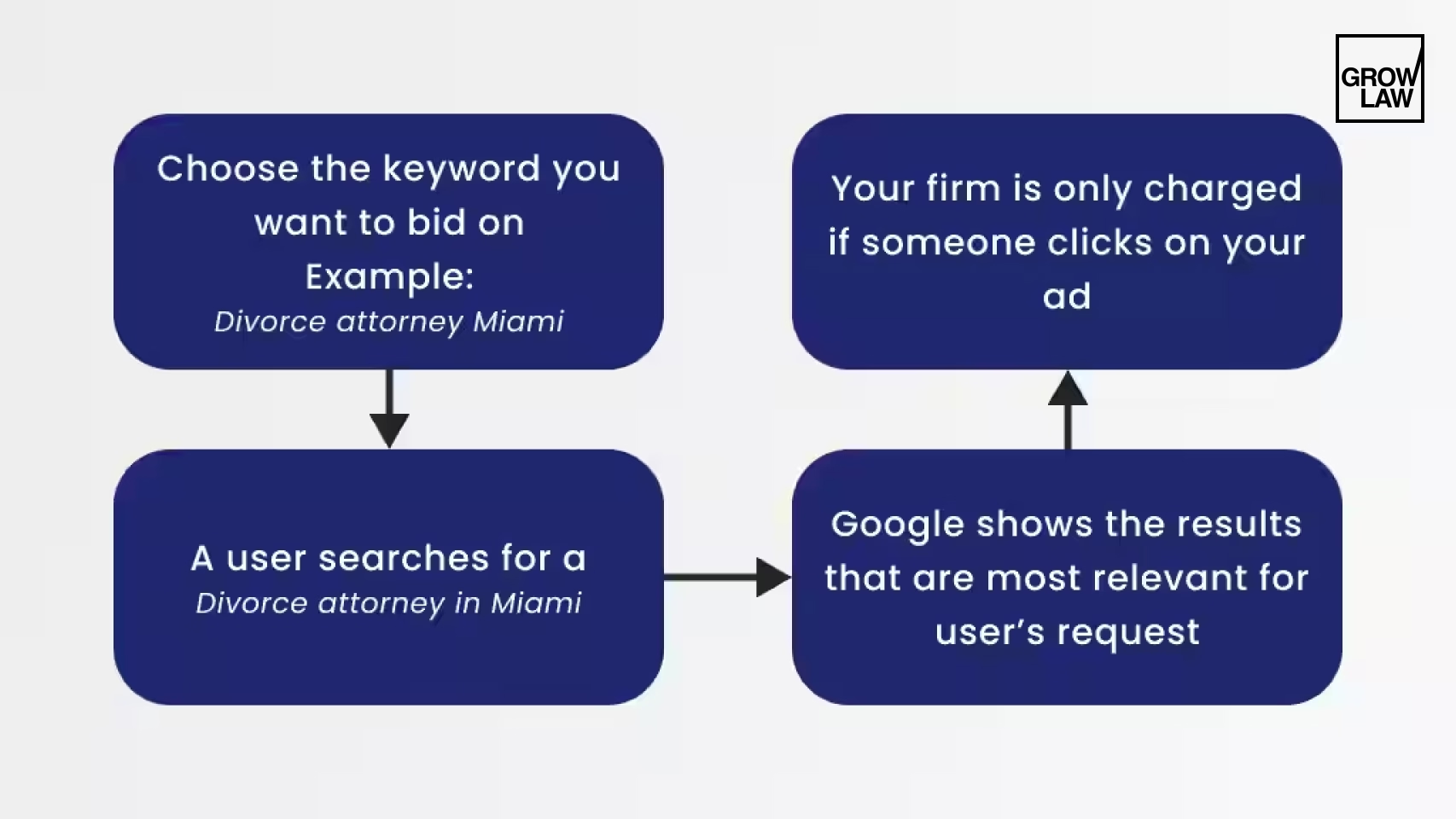
With pay-per-click (PPC) for lawyers, you pay for VIP placement at the top of Google. Pay per click ads are a form of digital advertising that appear at the top of search engine results pages (SERPs) when potential clients use search engines like Google. Search campaigns are set up in Google Ads, where you select specific keywords and target audiences; this is how Google Ads work to ensure your ads reach people actively searching for legal services. If done right, your ad pops up first for popular keywords like "criminal defense lawyer" or “sue for whiplash”.
PPC campaigns can provide instant visibility for law firms, allowing them to appear at the top of search engine results pages immediately. PPC advertising allows law firms to target potential clients actively searching for legal services based on their search intent.
Plus, you only pay if someone clicks on your ad on the search engine results page. Legal services enjoy an average PPC conversion rate of 9.27%, nearly double the 4.8% average across all industries!
Why is PPC Non-Negotiable for Law Firms?
PPC puts your firm instantly at the top of Google, targeting people with urgent, time-sensitive legal problems, like a DUI charge or an arrest.
But wait, isn't organic SEO enough to capture those leads? Not quite!
Organic search is very saturated. Ranking on page 1 for a competitive term like “personal injury lawyer” or “criminal defense attorney” can take months.
Even then, Google pushes organic results below ads, maps, and AI summaries!
PPC solves that problem by delivering immediate visibility at the top of the search engine results page.
Yes, legal PPC is expensive. Yes, the average cost per click ranges from $50 to $300+. But those clicks come from high-intent prospects, i.e., people ready to hire!
Studies show that PPC can generate a 200% return on investment (or $2 back for every $1 spent). Absolutely worth it if you do it right!
Benefits of PPC Advertising for Law Firms
At the end of the day, PPC for law firms is kind of like a superpower. You don’t have to wait months for it to kick in — you can show up at the top of Google today.
You control the budget, only pay when someone clicks, and target exactly who you want (by location, search intent, even time of day). And the best part? If something’s not working with your Google ads campaign, you can change it in minutes!
Up next — let’s talk about the different types of PPC ads, and where each one fits into your strategy.
5 Types of Lawyer PPC Ads
Yes, there is more than one type of PPC ad! Not sure what your law firm needs? Let’s clear that up.
When running PPC for lawyers, it's important to understand that law firm keywords such as 'car accident lawyer' are highly competitive and can significantly increase the cost of your campaigns. These keywords often have high search volumes and are targeted by many firms, which drives up bidding prices and impacts your advertising budget.
Google Ads (Search + Video)
Google Ads is the most common platform for law firm PPC. Search ads appear at the top of Google results when someone searches for terms like “personal injury lawyer” or “divorce lawyer Chicago.” Bidding on high-volume keywords like 'car accident lawyer' can be expensive, with average costs per click sometimes exceeding $50. Video ads can also be run on YouTube to reach potential clients in your area.
— Google Ads (Search + Video)

These are the bread and butter of lawyer PPC. Search ads show up right at the top of Google when someone types a keyword like “divorce lawyer near me” — and you only pay when they click.
Video ads run on YouTube and are great for building trust and visibility, especially for personal branding or complex services like estate planning or medical malpractice law.
— Display Ads

Think of display ads like digital billboards that follow people across the web. They're visual, memorable, and perfect for brand awareness or retargeting past site visitors who didn’t convert the first time.
— Local Services Ads (LSAs)

Want to show up at the very top of Google — even above regular ads?
LSAs do just that. You get a Google Screened badge, your headshot, reviews, and you only pay for actual leads (calls or messages).
This type of PPC marketing campaign is perfect for firms that serve specific local areas and want to build trust fast!
— Geofencing Ads
Geofencing is like digital targeting with a sniper scope.
You draw a virtual boundary (say, around a courthouse or hospital), and when someone enters that zone with their phone, they start seeing your ads.
Even better, you can keep serving them those ads after they leave.
Quick examples:
- Target hospital visitors with PI ads
- Target the courthouse for family or criminal law
- Use location-specific messaging (e.g., “Need a lawyer after your ER visit?”)
— Bing Ads
Bing isn’t dead — in fact, it’s quietly effective, especially with older, higher-income users.
Lower competition often means cheaper clicks in the legal industry. It’s a smart add-on to your Google strategy.
Next up: Let's talk about how to build a law firm PPC campaign that doesn’t blow your budget, and gets you real, paying clients.
How to Create and Manage a Legal PPC Campaign
So, you’ve decided to give PPC a shot. Lovely! But now what?
Many law firms face significant challenges in reaching potential new clients due to small budgets and lack of experience in marketing, making it essential to manage the law firm's PPC campaigns effectively. Integrating PPC into your law firm's overall marketing efforts and strategy is crucial for maximizing visibility and client acquisition. A well-managed law firm's PPC campaign can help overcome these challenges and attract more clients.
Setting up a successful PPC campaign isn’t just throwing keywords into Google and hoping leads magically appear. You want to target relevant keywords.
But unless you’re using a PPC law firm agency, it can get messy fast.
Let’s break it down — step one: know what the heck you’re trying to accomplish.
1. Get Your Objectives Clear
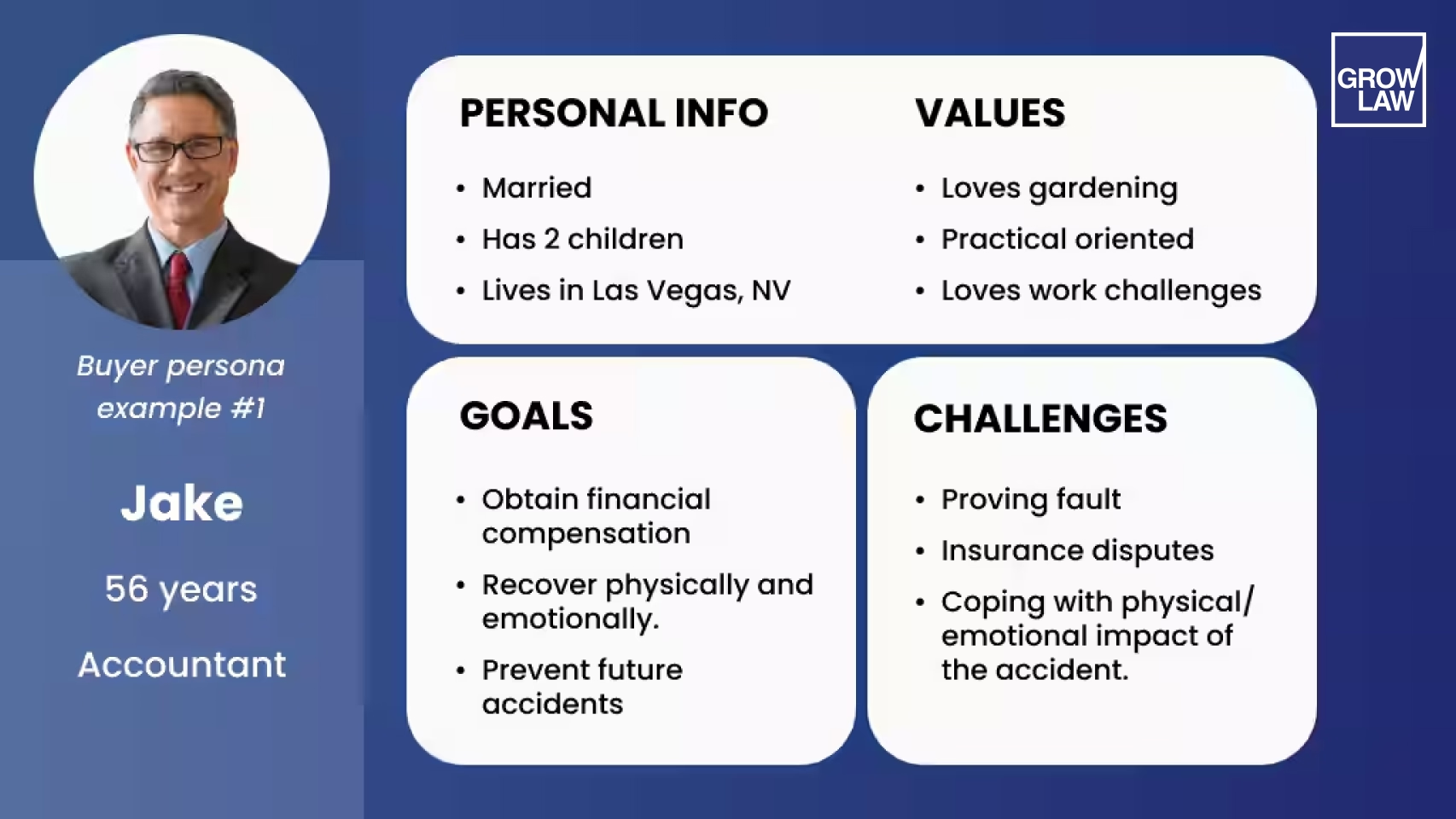
“Get more leads” is vague. A better PPC goal is "generate 20–50 qualified calls or contact form submissions per week" or "increase landing page conversion rate from 5% to 10%+."
And here's the good news: Google has built-in goals you can select directly inside Google Ads:
- Sales – Drive purchases, bookings, or paid actions
- Leads – Generate calls, form fills, or sign-ups
- Website Traffic – Send users to key pages
- Product & Brand Consideration – Reach people actively comparing options
- Brand Awareness & Reach – Maximize impressions and visibility
- App Promotion – Increase installs or in-app actions
- Local Visits – Drive foot traffic or local actions
Choose one primary goal, and everything from bidding to targeting will be built around that.
Other Pro Tips:
- Make your goals SMART: Specific, Measurable, Achievable, Relevant, Time-bound.
- Decide how you’ll track the success of your online advertising (e.g., cost per lead, conversion rate).
- Don’t try to do everything at once in your marketing strategy — pick one goal, crush it, then scale.
- Revisit your goals regularly and adjust if they’re not hitting.
PPC management — good PPC management — starts with a few simple measures beforehand.
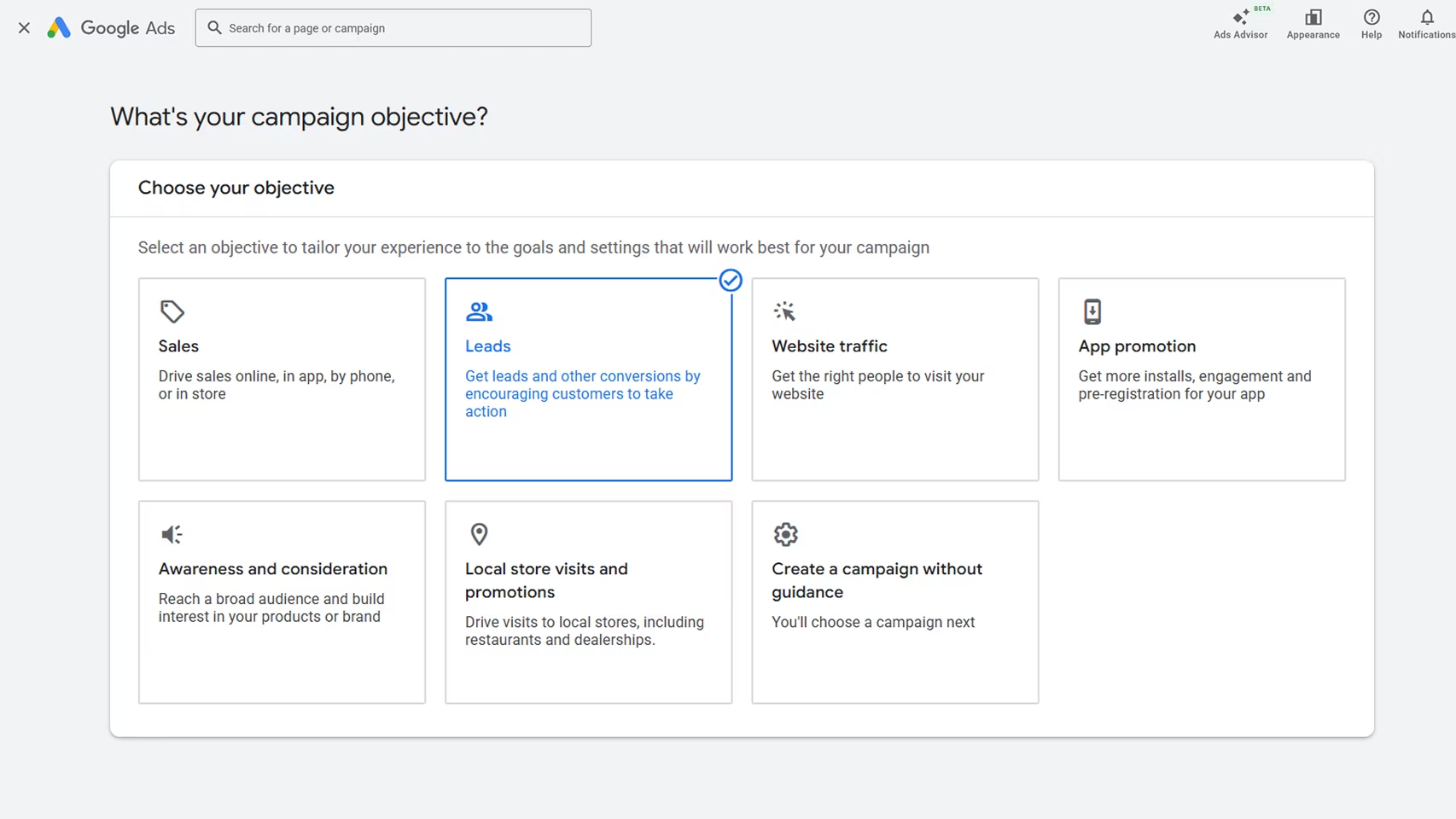
2. Define Your Target Audience
Your ads must pop up for the right people at the right time. Google Ads gives you 3 core audience controls during campaign setup.
- Location Targeting
Choose where your ads appear. Law firms should target specific cities, counties, or service areas; not entire states. You can also exclude locations you don’t serve to avoid wasting money.
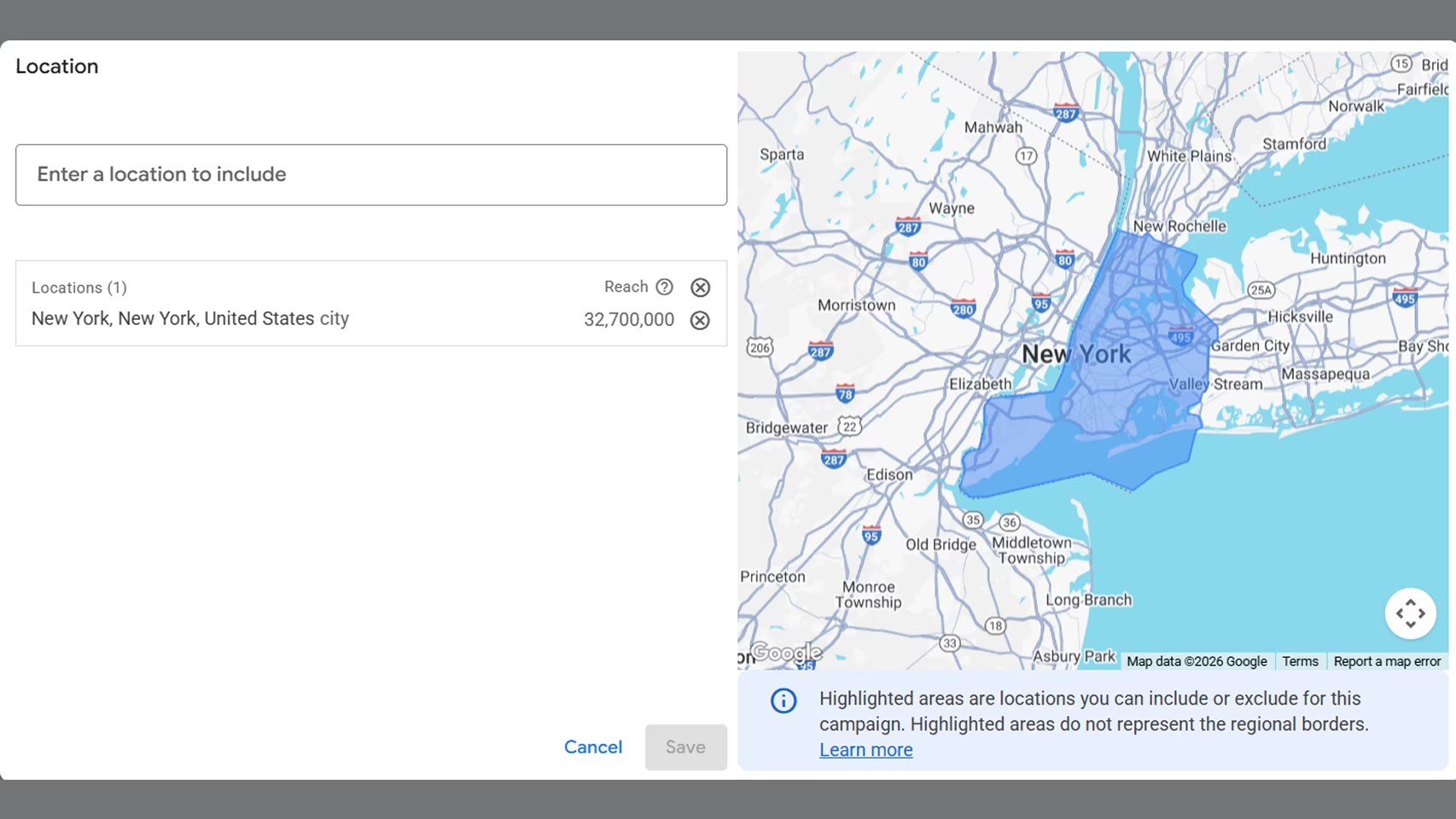
- Demographic Targeting
Next, Google lets you refine who sees your ads by gender, age, parental status, household income, and other demographic signals. This helps filter out low-quality clicks.
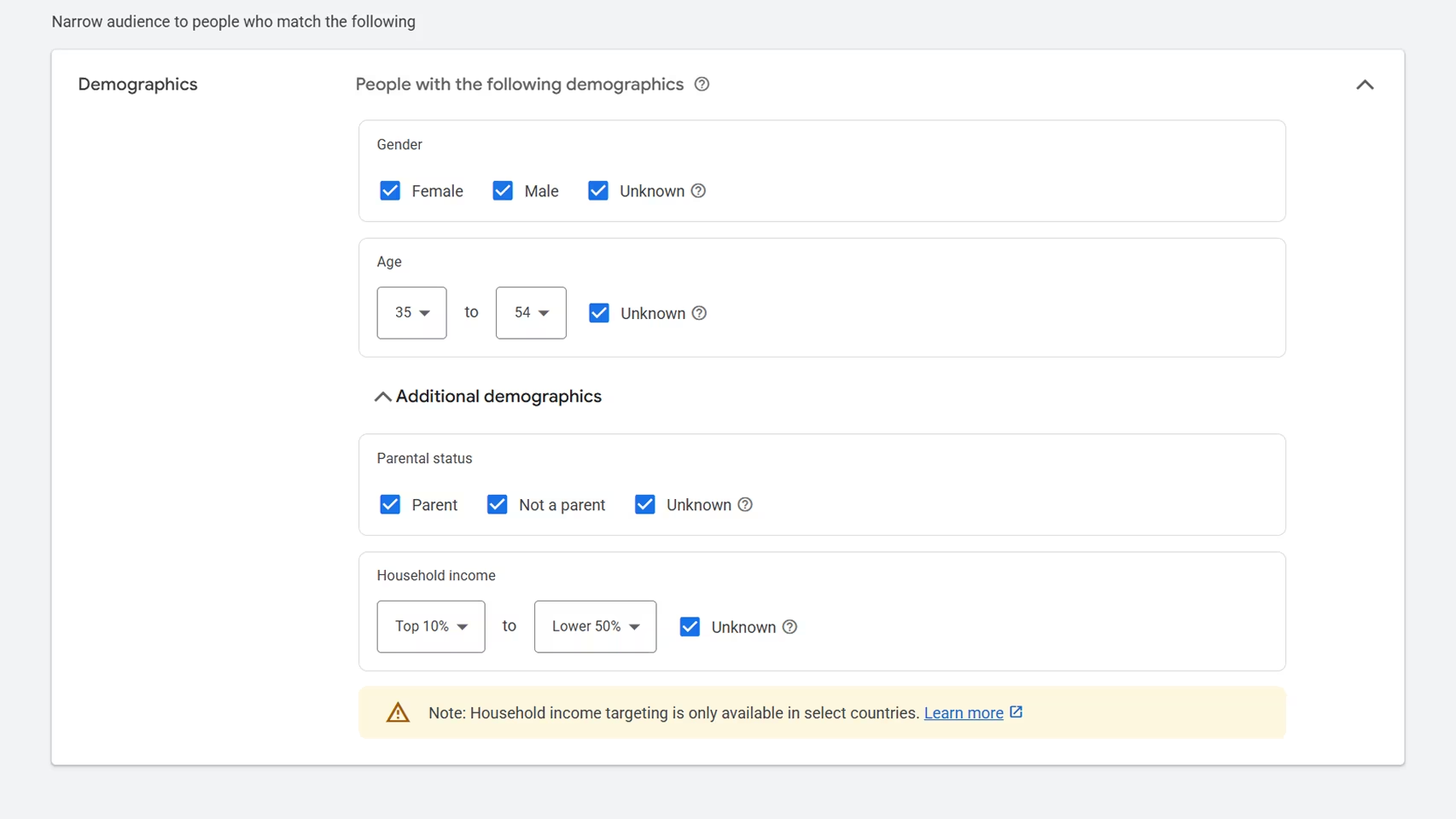
- Keyword & Search Intent Targeting
Here, you define what people are searching for. These keywords trigger your ads when users type legal-related terms into Google. Example: "employment law attorney near me."
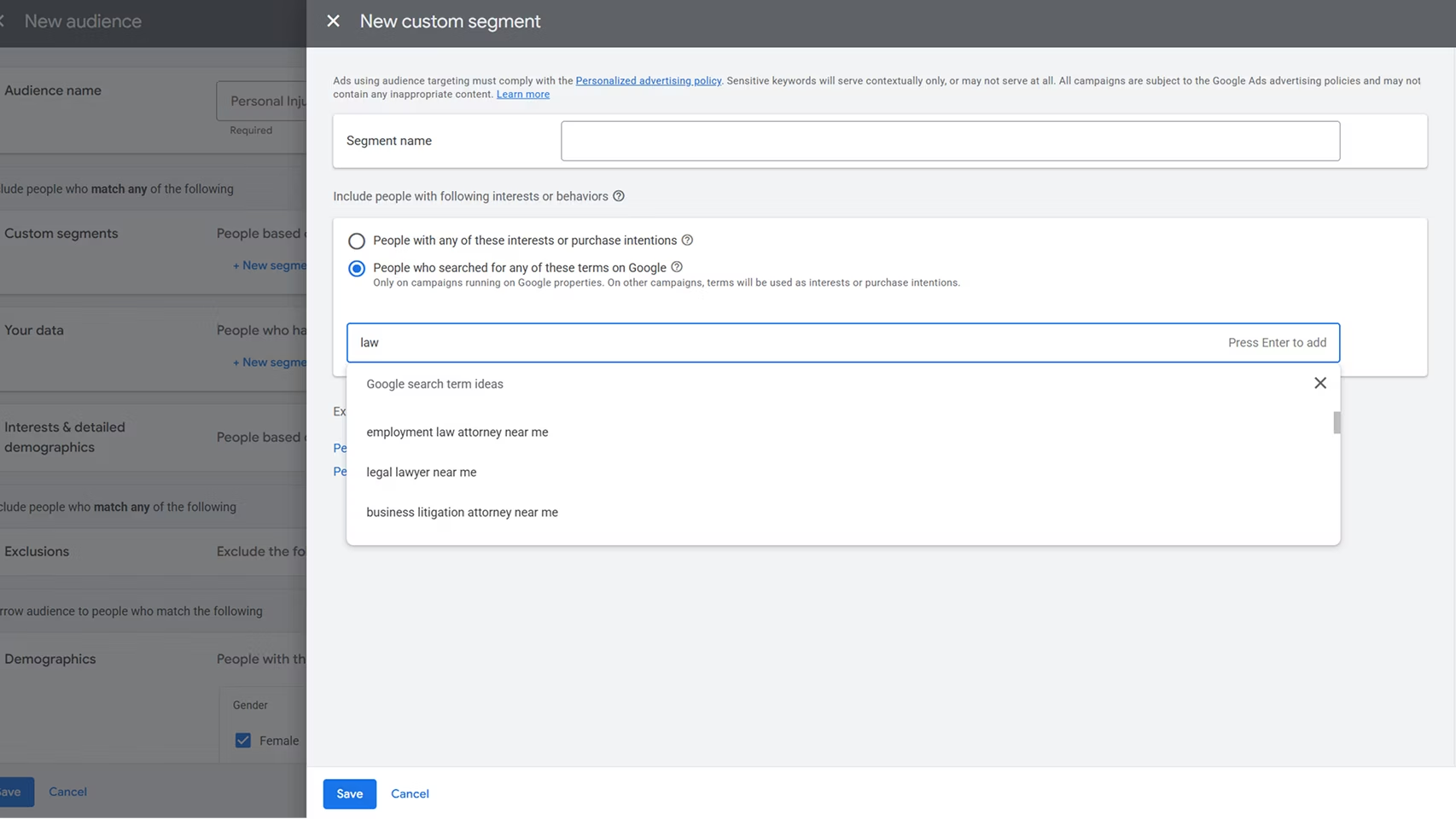
3. Nail Down Your Keyword Research

Keyword research is essential for creating successful PPC campaigns for law firms. Selecting the right keywords can significantly impact the success of your campaign. Use tools like Google Keyword Planner, SEMRush, and Ahrefs to identify relevant keywords and law firm keywords for your campaigns, paying attention to metrics that indicate competitiveness and cost because you do NOT want to show up for something like "free legal advice".
Figure out exactly what your ideal clients are typing into Google — stuff like “first DUI consequences,” “sue for whiplash after car accident,” or “how to get full custody of my kid.”
Tools like Google Keyword Planner, SEMRush, and Ahrefs will help you find the gold:
- High-intent phrases — “hire criminal defense attorney”
- Long-tail keywords — “do I need a lawyer after a minor car accident in Texas?”
- Common misspellings — yes, people Google “lawyer near me.”
P.S. Google Keyword Planner is a free tool inside Google Ads. It helps you find search terms people use when looking for legal help.
You can see keyword ideas, estimated search volume, and even competition levels! That way, you only bid on high-intent phrases and avoid expensive terms that don’t attract clients.
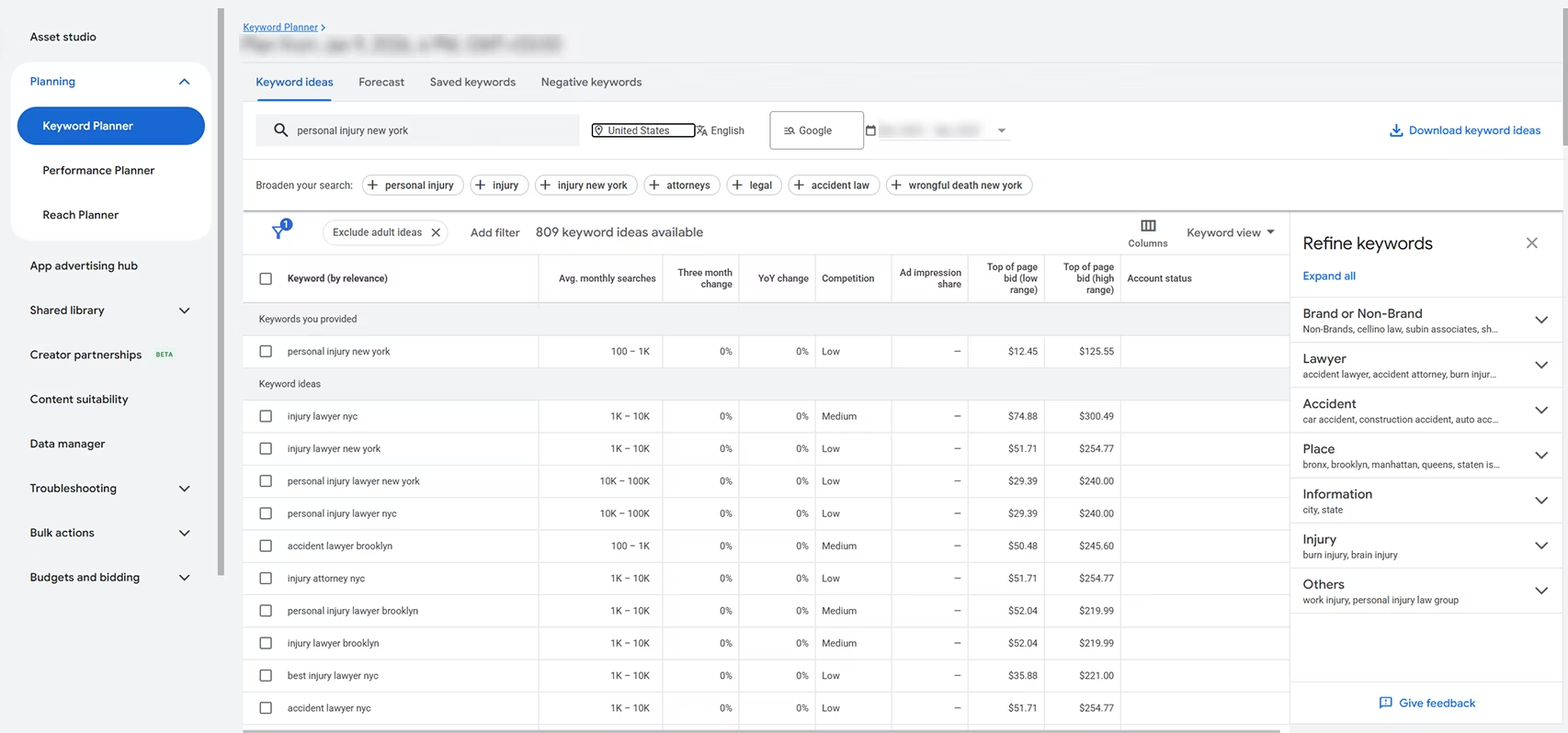
Don’t just go after the obvious terms either. Some folks are looking to hire now, while others are still Googling “do I need a lawyer if…” — both are worth targeting.
And hey, remember to exclude negative keywords to avoid wasted ad spend.
For example, if you're a personal injury lawyer, you might want to exclude terms like “free legal advice” or “law school” — because those clicks won’t turn into prospective clients.
And here's a fun feature: Google Ads projections! It gives you estimates before you launch. It uses past data and current trends to predict clicks, costs, and potential leads. Pretty handy, right?
You can set your budget and expectations accordingly.
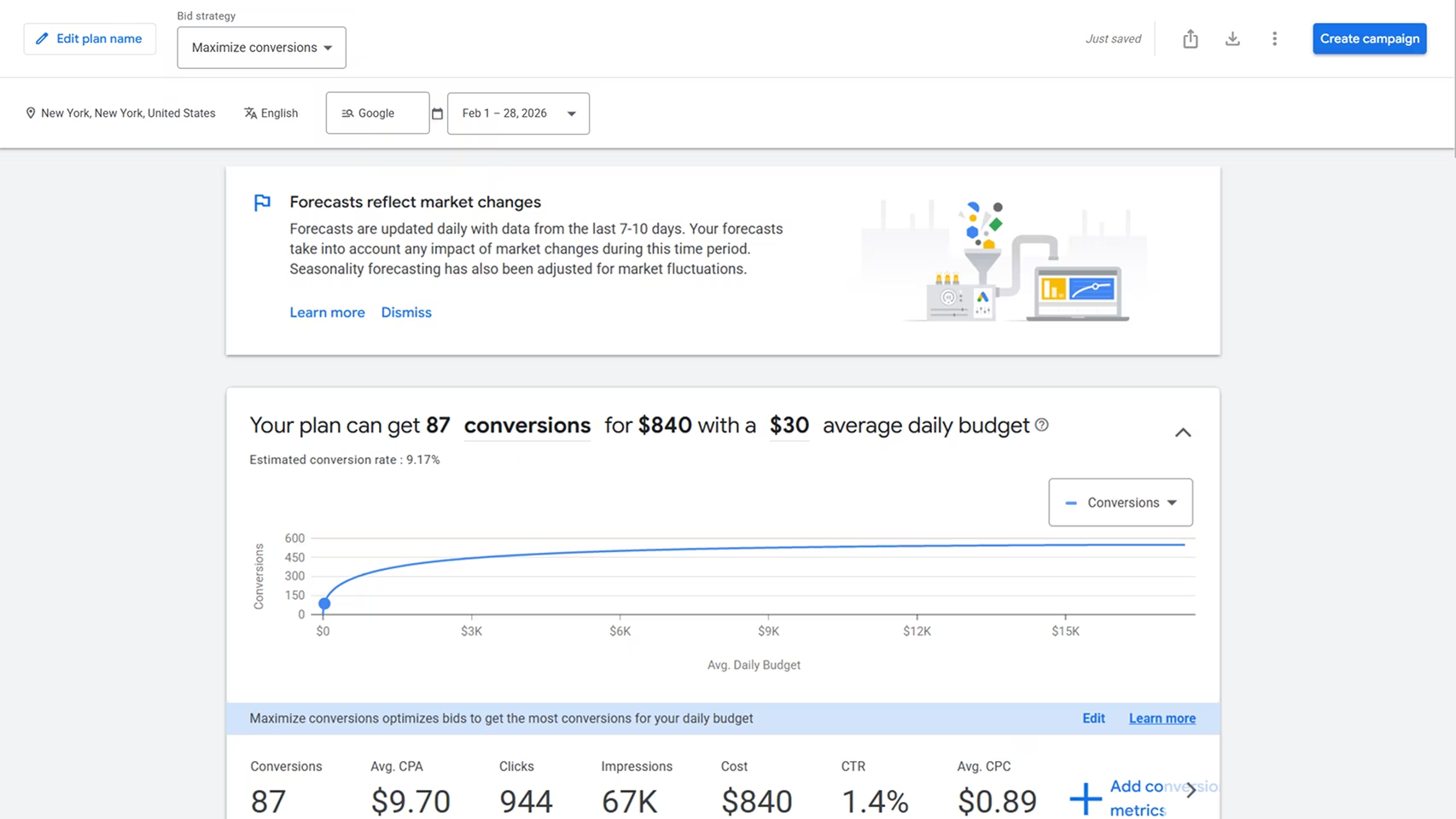
4. Create Action-Worthy Ad Copy

You’ve got about two seconds to make someone think, “Man, this lawyer gets me.” Your law firm PPC ads need to hit hard and fast.
Here’s how to write great lawyer ad copy:
- Mirror their mindset: If someone searches “fired for no reason”, your ad should say “Wrongfully terminated? Know your rights.”
- Use numbers: Stats build credibility fast. Try things like “1,127+ cases won” or “Over $5M recovered for injury victims.”
- Play to emotions: Fear, anger, hope, relief — law is emotional. Use it. (“Facing jail time? Don’t go it alone.”)
- Tap into self-interest: People care about what they get. Lead with benefits, not legal jargon.
- Front-load your best line: On mobile, space is tight. Make your headline count right away.
- Make your display URL look legit: Try something like: yourfirm.com/car-accident-help
- Write better CTAs: Skip “Contact us.” Say “Get a free case review today,” or “Talk to a real attorney now.” Always include a strong, clear call-to-action to improve conversion rates.
- Always A/B test: Headlines, CTAs, tone — test everything and keep what converts.
- Use local keywords: Add the city or neighborhood to improve relevance and clicks.
Compelling ad copy should be clear, concise, and include a strong call to action to encourage potential clients to take the next step.
5. Design Eye-Catching Visuals
Facebook ads with good visuals see 2.3x more engagement, and visual content increases click-through rates by up to 42% across platforms.
Here's our visual cheatsheet:
- Use real, high-quality images: Photos of your team, office, or happy clients build trust fast.
- Match visuals to your practice area: Family law? Show real families. Car accidents? Think local landmarks + urgency (hospital signs, damaged vehicles).
- Keep it brand-consistent: Your visuals should feel like your firm, not a generic Canva template.
- Incorporate motion: Short videos showcasing client results are great to stop the scroll.
- Skip the fluff: Vague “justice scales” or gavel shots won’t cut it. Show why you’re the one to call.
6. Optimize Your Landing Pages

So your ad got the click — now what?
If your landing page is slow, sloppy, or confusing, potential clients will run straight into a competitor's arms.
Here’s how to make your law firm PPC strategy more robust:
- Match your ad: If your ad says “Injured in a car accident?”, the landing page better keep that same energy. Don’t bait-and-switch.
- Use strong, clear headlines: Grab attention and instantly confirm they’re in the right place.
- Guide the next step: Make your call-to-action obvious: “Book a free case review” is better than “Submit.”
- Keep it mobile-friendly: Over 60% of legal searches happen on mobile — don’t make users pinch and zoom.
- Make it fast: A page that takes longer than 3 seconds to load? Say goodbye to 53% of visitors.
- Stick to one goal: Don’t overwhelm with 7 services, 3 forms, and a newsletter opt-in. One page = one goal.
7. Set a Realistic Budget
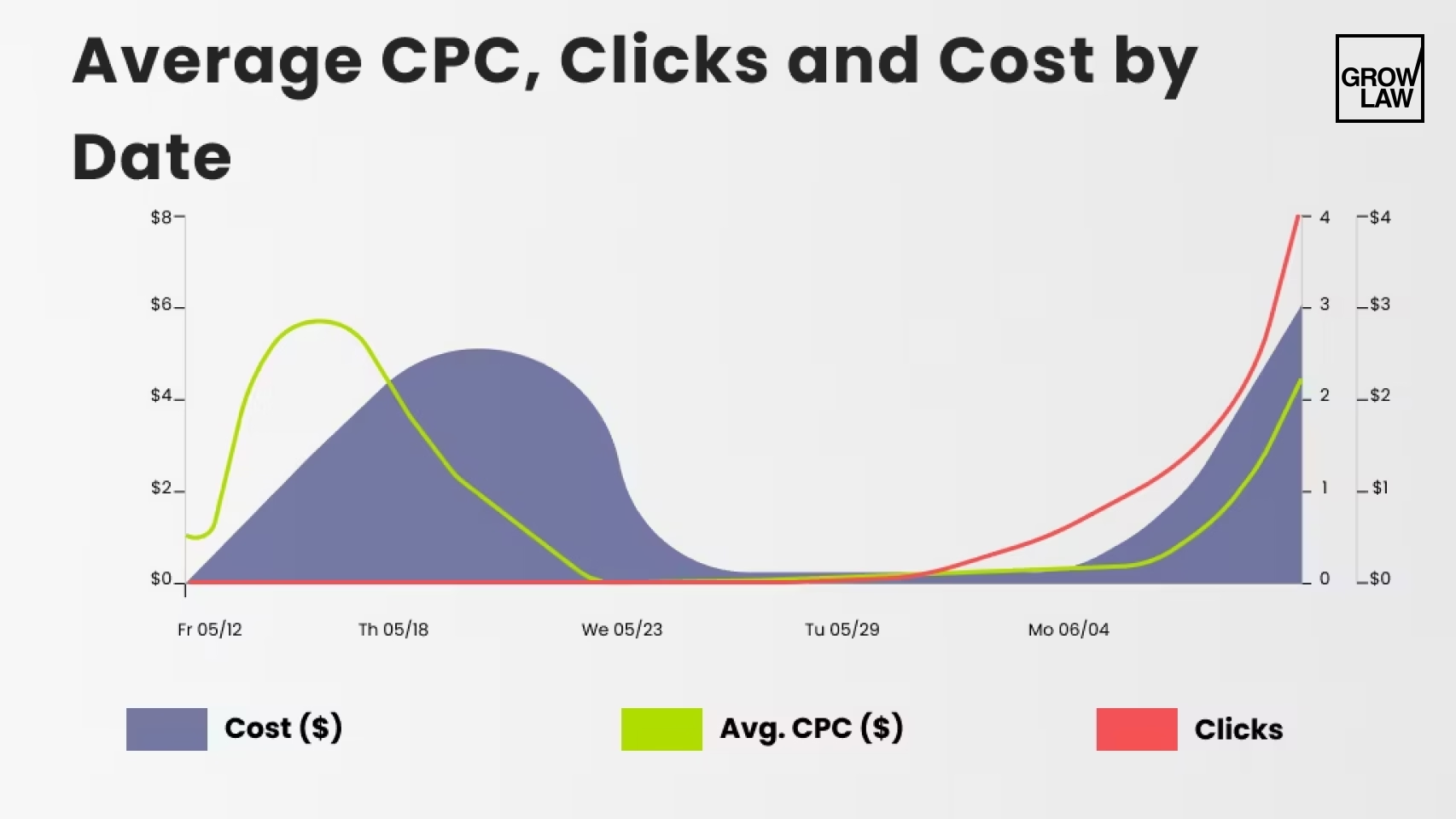
Got a profit goal? Great! Now let's reverse-engineer your PPC budget.
Say you want $5K in profit this month. If your average case brings in $450 and your gross margin is 55%, you’ll need around $7,375 in PPC ad spend to make that happen.
Your budget depends on a couple of things:
- Keyword costs for your niche
- Client lifetime value
- What it takes to land a conversion
Tools like Google Ads Keyword Planner can help estimate cost-per-click for your chosen terms.
Running a two-month PPC marketing campaign? Project your impressions, clicks, and costs first, then decide what’s workable. You can also use a PPC budget calculator to ballpark a realistic spend.
Quick tip: Google uses average daily budgets, so don’t panic if you overspend one day — it evens out across the month (typically 30.4 days).
8. Monitor and Analyze Campaign Performance
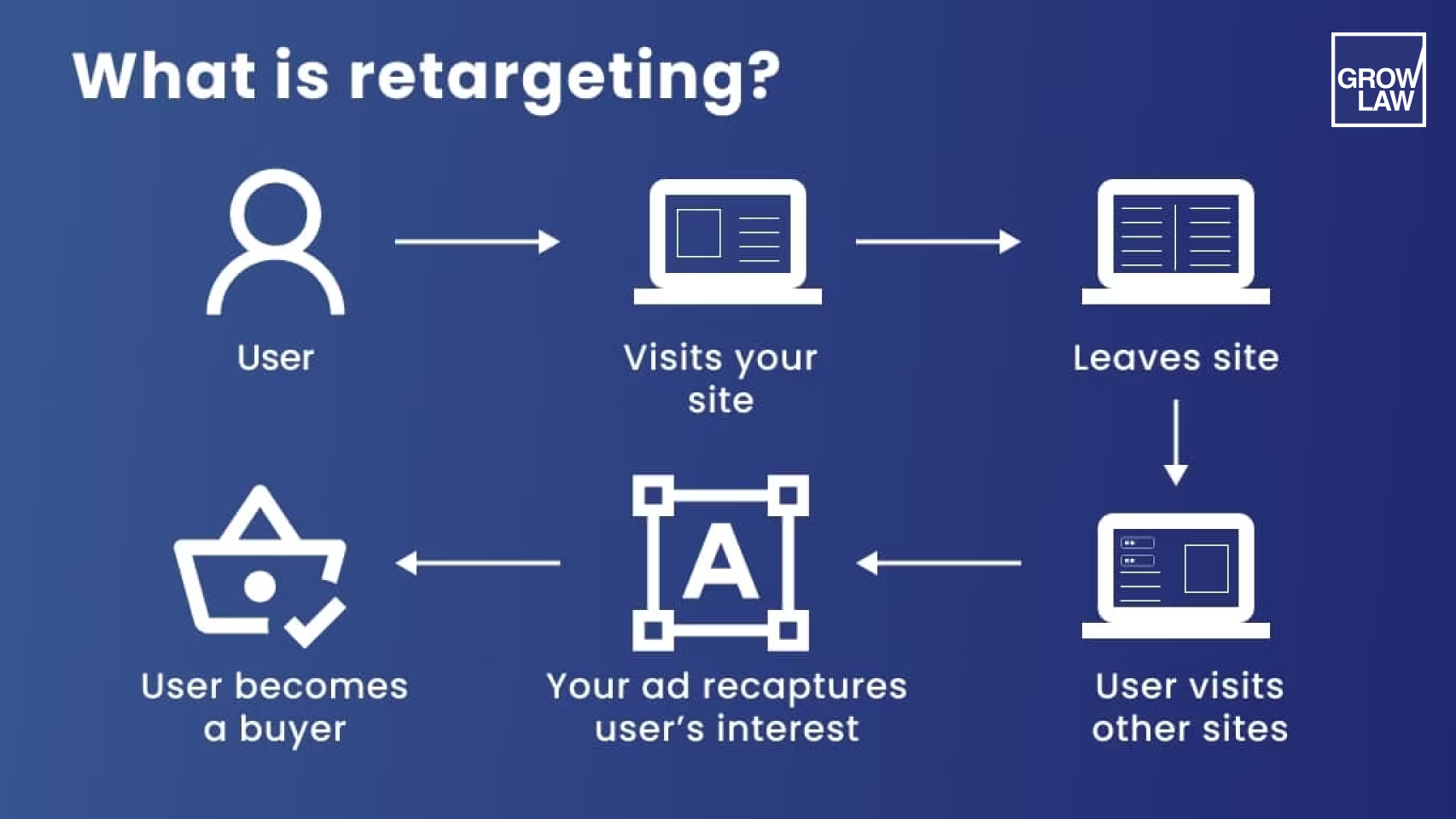
Okay, now that your PPC ad campaign is live, you can relax...
Just kidding.
It’s time to watch it like a hawk. Regular monitoring helps you spot issues, optimize your PPC campaign performance, and double down on what’s working.
Tools like Google Ads dashboards or AI-powered platforms can save you time while tracking key metrics like:
- Impressions: How often your ad is shown
- Clicks: How many people actually click
- CTR (Click-through rate): Clicks ÷ impressions — this tells you how compelling your ad is
- CPC (Cost per click): What you’re paying per click
- Conversions: Calls, form submissions, bookings
- Conversion rate: Conversions ÷ clicks — this shows how well your landing page is closing the deal
Conversion tracking is a must in your Google analytics. Set it up using Google Ads, Bing Ads, or Google Tag Manager. This lets you trace actions like free consultation bookings or signed retainers back to specific ads.
Pro Tip: Believe in second chances? So do we! Try retargeted ads.
These ads "follow" people who visited your site but didn’t reach out. They show up wherever they go online, like on Google, YouTube, Facebook, or news sites.
9. Re‑Engage High‑Intent Prospects With Remarketing
Remarketing simply means this: you show ads to people who’ve already visited your site or clicked your ads before, but haven't contacted you yet.
98% of people do not convert at the first point of contact.
Prospects often compare firms, read reviews, or wait for a "trigger" event (like medical bills arriving after an accident) before contacting an attorney.
Remarketing keeps your firm visible during that window.
That said, Google places strict limits on remarketing for sensitive legal and medical topics. In areas like personal injury or health-related cases, targeting is restricted to protect user privacy. Be sure to follow Google’s policies carefully.
10. A/B Test Ad Variants
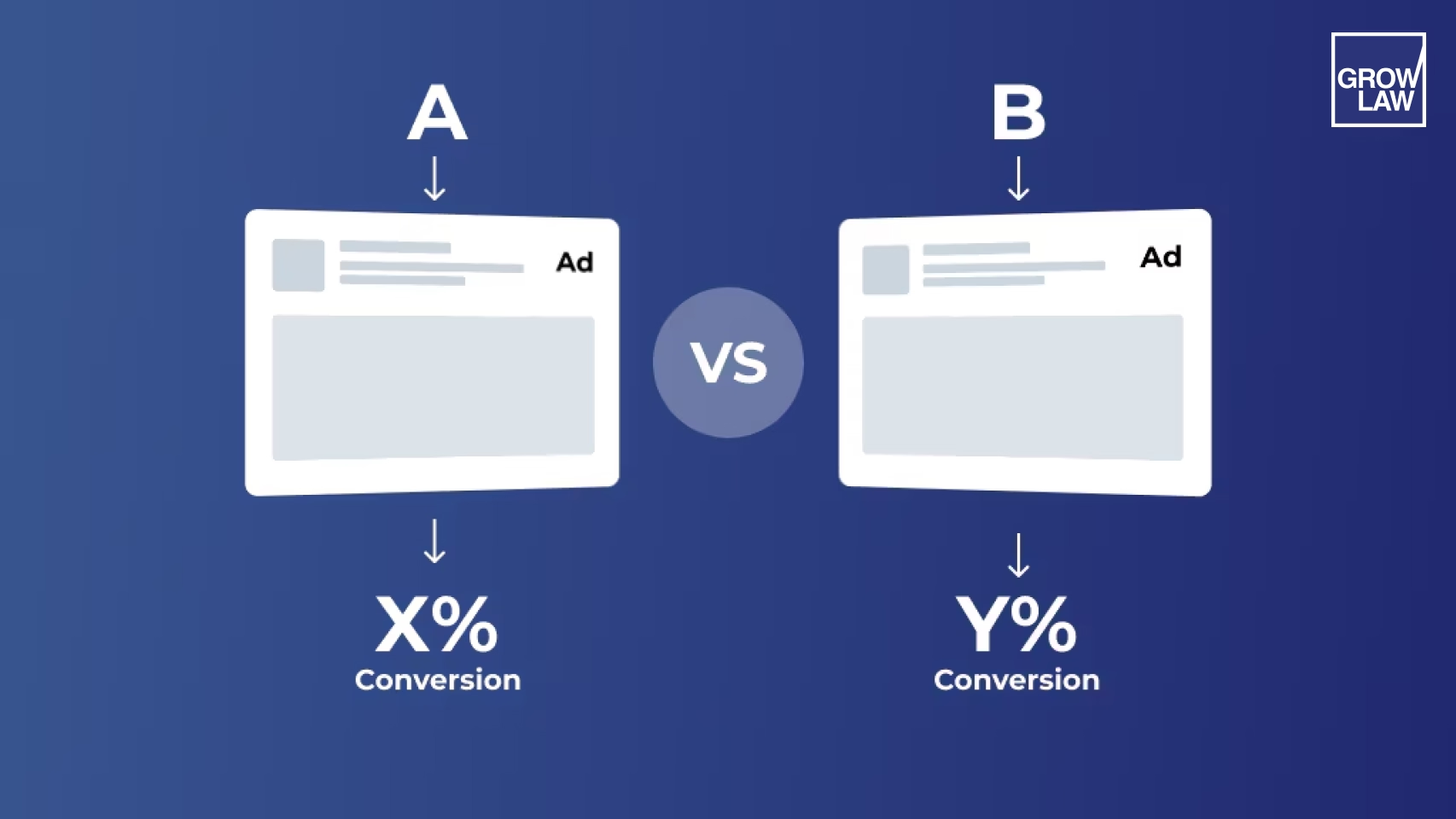
Think your ad copy is good? Let's find out!
A/B testing (aka split testing) means running two versions of an ad — with one key difference — to see which performs better.
You might change the headline or CTA. The trick? Only test one thing at a time so you know what’s actually moving the needle.
Example: Try “Injured in a crash?” vs. “Hurt in a car accident?” — then let the data decide.
Make sure both versions run at the same time and get enough impressions (thousands, ideally). A few days won’t cut it — aim for a week or two to get real results.
Google Ads has built-in tools for this. Even third-party platforms like Unbounce, Hotjar, or Google Optimize let you experiment with different elements to boost performance.
11. Stay Updated with PPC Trends and Best Practices
PPC isn’t a crockpot — you can’t just set it and walk away.
And sadly, what worked six months ago might tank today.
Keep your skills sharp by following industry blogs, newsletters, and PPC pros on LinkedIn or X (Twitter). A little reading each week goes a long way.
A major trend to watch? AI and automation. Tools like Smart Bidding and Performance Max are reshaping how campaigns work, letting Google optimize in real time to drive more conversions with less manual effort on your end.
And remember, follow legal advertising regulations to a tee. You do not want to land in hot water with your PPC ads.
Finally, do NOT ignore your analytics. Regularly review your metrics to spot what’s working and where to experiment next.
Bottom line: Never assume your pay-per-click advertising campaign is “done.”
Emergency PPC Management For Law Firms in Crisis
When your law firm hits a slow month, loses rankings, or faces a sudden drop in leads, waiting to recover isn't wise.
It's better to rely on emergency PPC management. Emergency PPC focuses on:
- Immediate visibility at the top of Google
- High-intent searches from people ready to call now
- Fast lead flow to stabilize intake and cash flow
- Reputation control, ensuring your firm dominates urgent searches
Paid search is often the only channel that can generate qualified leads within days. Is your law firm already feeling the pressure of leads slowing down?
Delaying only makes recovery harder!
Act fast. Launch the right PPC strategy with Grow Law and get your phones ringing again.
Why Choose Grow Law for Your Lawyer PPC Campaign
We specialize in one thing: helping law firms get more clients.
With 15+ years in legal marketing, Grow Law knows what works — and we don’t waste your budget figuring it out.
Our team delivers ROI-first paid ads and handles everything from start to finish: setup, tracking, testing, and ongoing optimization to boost your ROI.
Every campaign is customized to your practice area, your goals, and your ideal clients!
Why DIY Your PPC? That's Risky.
With high cost-per-clicks (going over $100) and intense competition, one wrong setting can burn thousands of dollars.
At Grow Law, our legal marketing experts manage your law firm's SEO (search engine optimization) and PPC services for attorneys to unleash a flood of new leads.
100+ happy legal clients have witnessed:
- Up to 1,018% more qualified leads
- 4X to 8X ROI on your marketing spend
- Over 80+ years of combined marketing experience to optimize your returns further
- 100% transparency into every dollar spent
- The full backing of our senior strategists, along with unlimited hours on your PPC
Book Your Free Growth Plan Today
Keep blowing money... or start getting clients. Your move.






.avif)


